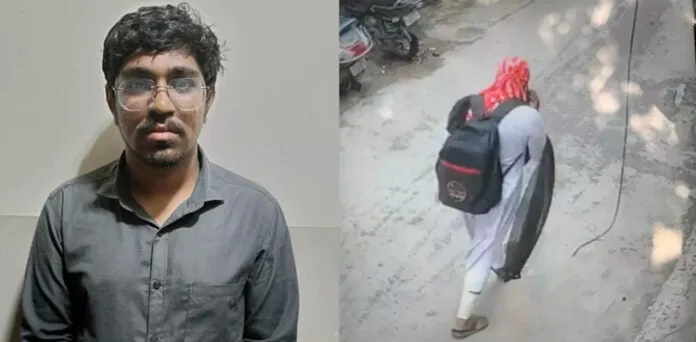India’s Rajasthan State Stops Egg Sales on Religious Festival Days
Rajasthan has created history by banning egg sales during religious festivals. This marks the first time eggs are included in festival restrictions.
Government Orders Historic Egg Sale Ban
The Rajasthan Department of Autonomous Governance issued orders to ban egg sales during Paryushan and Anant Chaturdashi festivals for the first time. Previously, only meat and fish shops closed during these religious occasions.
The ban affects two specific dates:
- August 28, 2025 – Paryushan festival
- September 6, 2025 – Anant Chaturdashi
What Changes From Past Traditions
Earlier, the government only closed meat and fish shops during Hindu and Jain festivals. This year marks the first time egg sales have been banned throughout the state on these days.
The new order requires all these businesses to close:
- Non-vegetarian food shops
- Slaughterhouses across the state
- Egg-selling outlets everywhere
- All related non-veg businesses
Why Rajasthan Made This Decision
Religious organizations demanded the ban on meat and egg sales. Local authorities explained that these groups wanted strict non-violence principles during sacred festivals.
Municipal leaders said religious groups continuously asked for these restrictions. The government decided to change tradition by including eggs in the ban this year.
Religious Festivals Behind the Ban
The egg ban happens during two important festivals:
Paryushan Festival: This is the most important Jain religious event. Jains practice strict non-violence and avoid all animal products during this time.
Anant Chaturdashi: This Hindu festival honors Lord Ganesha. Many devotees avoid non-vegetarian food during religious celebrations.
How the Ban Affects Local Businesses
All businesses selling eggs must close completely on these dates. The government order applies statewide, affecting:
- Small egg vendors
- Grocery stores selling eggs
- Restaurants serving egg dishes
- Bakeries using eggs in products
- Any shop with egg-based items
Business owners must follow these rules or face legal action from local authorities.
Public Reaction to New Rules
The egg sale ban has created mixed reactions across Rajasthan. Some people support respecting religious sentiments during festivals.
Others question why the government extends restrictions beyond traditional meat bans. Many worry about economic impact on small vendors who depend on daily egg sales.
Legal Background of Festival Bans
The Supreme Court of India previously upheld slaughterhouse closures during Paryushan festival in states with large Jain populations like Rajasthan, Gujarat and Maharashtra.
The court stated that short restrictions show respect for community religious feelings in India’s diverse culture.
Other States with Similar Policies
Rajasthan joins other Indian states that restrict food sales during religious festivals:
- Gujarat regularly closes meat shops during Jain festivals
- Maharashtra has similar policies in Jain-majority areas
- Madhya Pradesh recently banned meat sales during Ganesh Chaturthi
- Several states follow this practice during major religious events
Economic Impact on Vendors
Small egg sellers face financial challenges from these mandatory closures. Many vendors depend on daily sales to support their families.
The government has not announced any compensation for affected businesses during ban periods. This creates hardship for people in the egg supply chain.
What This Means Going Forward
Rajasthan’s decision to include eggs in festival bans may influence other states. Religious groups in different regions might demand similar restrictions.
This change shows how traditional festival practices continue evolving in modern India. The balance between religious respect and economic freedom remains a ongoing challenge.
Conclusion
Rajasthan has broken new ground by banning egg sales during Hindu and Jain festivals. This historic first expands beyond traditional meat restrictions to include eggs.
The policy reflects growing demands from religious organizations for stricter festival observances. How this affects businesses and public opinion will shape future decisions across India.







